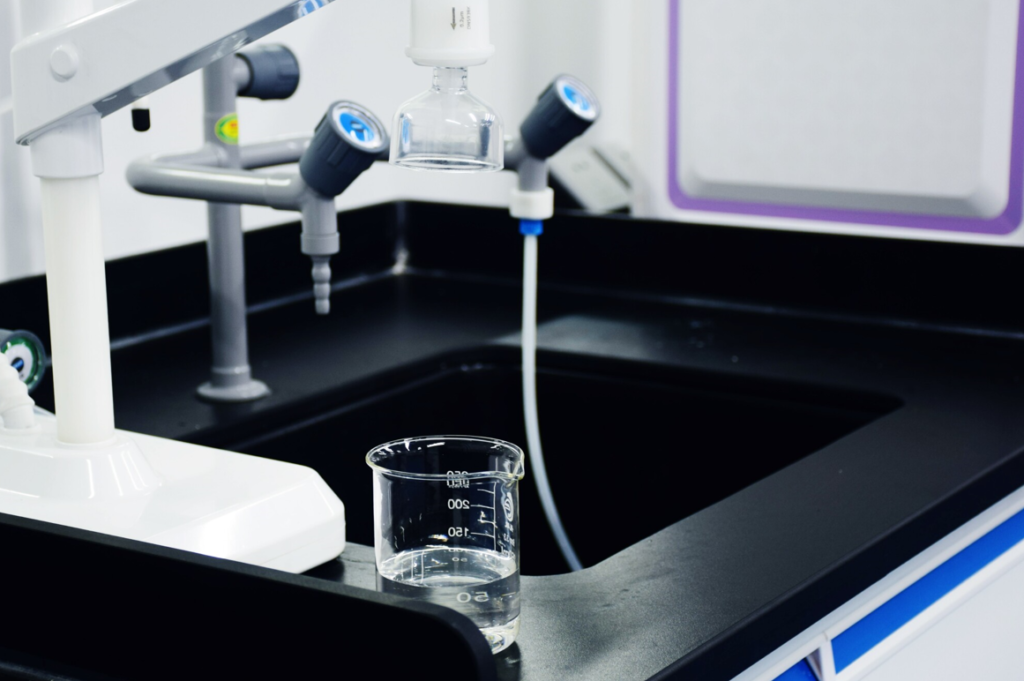Have you ever wondered what’s really in the water flowing through your taps? Whether you’re managing a bustling office or enjoying the comfort of your home, water quality plays a critical role in daily life.
From health concerns to system maintenance, ensuring clean water isn’t just a luxury-it’s a necessity. But what happens when untreated water brings harmful contaminants into your space?
In this guide, you’ll discover why water treatment is essential for both commercial and residential properties. By the end, you’ll understand its importance and how it benefits your property and lifestyle.
What Is Water Treatment?
Water treatment is the process of removing impurities from water to make it safe for use. This includes filtering out harmful contaminants like bacteria, heavy metals, and chemicals. In commercial and residential properties, treated water means healthier drinking, bathing, and cleaning experiences.
It often involves multiple stages such as filtration, disinfection, and softening. These processes work together to ensure water meets health and safety standards. For example, a simple water filter may eliminate chlorine, but more advanced systems tackle microscopic pollutants.
Water treatment also improves the taste and smell of water, making it more pleasant to use. This is especially important in areas where water naturally has a high mineral content. Additionally, treated water protects plumbing systems from scale buildup and corrosion, reducing maintenance costs.
How Does Water Quality Vary by Geographical Location?
Water quality differs from place to place due to natural and human factors. Some regions have hard water, which is rich in minerals like calcium and magnesium. Others might face challenges like industrial pollution or agricultural runoff.
Understanding your geographical location’s water quality is the first step toward effective treatment. For instance, rural areas may require solutions targeting nitrates and pesticides. On the other hand, urban water often needs treatment for heavy metals and chlorine.
Commercial and residential properties in coastal regions often deal with high salt levels in their water. Similarly, areas near factories or farms might encounter unique contaminants. Tailoring water treatment systems to local needs ensures better results.
Why Are Harmful Contaminants a Major Concern?
Many harmful chemicals can be found in untreated water, which can be bad for your health and damage your property. Lead, bacteria, and chemical residues are all everyday examples of this. Long-term drinking of this water could make you very sick.
In business settings, dirty water can hurt customers and employees, which can cause legal problems. On the other hand, residential properties have problems like family members getting diseases from water. Even contaminants that don’t seem dangerous, like chlorine, can make your skin and eyes hurt.
Harmful contaminants can also damage plumbing and appliances, making them less efficient and wearing out faster. For example, sediment buildup can cause water heaters to break down early. This is why it’s not only smart to buy water treatment systems, it’s necessary.
The Impact of Scale Buildup on Plumbing Systems
Minerals in hard water, like calcium and magnesium, settle on surfaces and cause scale to form. This makes a layer that won’t come off over time, which clogs pipes and breaks appliances.
This can mean a lot of repairs and downtime for commercial properties. Scale buildup in homes lowers water pressure and shortens the life of appliances. It gets worse for everything; even water heaters use more energy, which makes bills go up.
Water softeners are a game-changer because they stop scale from building up. These systems get rid of the minerals that make water hard, which keeps plumbing systems running smoothly. Experts like Agape Water Solutions can help you solve these kinds of problems in a good way.
Legal Compliance in Water Management
In many places, properties have to meet certain standards for water quality. This is especially important for business properties because not following the rules can lead to big fines.
To follow the law, water treatment systems need to be tested and installed regularly. For example, restaurants, hotels, and offices need to make sure the water they use for drinking, cooking, and cleaning is safe.
In the case of residential properties, compliance could mean meeting community standards for water safety. No matter where you are, following the law protects not only your property but also the health of everyone who uses it.
Health Benefits of Treated Water
No one can be sick if they drink clean water. If you drink water that hasn’t been treated, you could get sick, like with a stomach infection. On the other hand, these risks are gone with treated water.
Businesses like schools and hospitals need to have safe water. In residential settings, too, families can cook, bathe, and drink without worrying about safety.
Water that has been treated also helps hair and skin by getting rid of irritants like chlorine and heavy metals. This is very important for people whose skin is sensitive.
Cost Savings Through Water Treatment
Water treatment systems might cost a lot at first, but they do save money over time. They keep plumbing and appliances from breaking down because they don’t let scale build-up.
As water heaters and dishwashers work more efficiently, energy costs go down in commercial buildings. Homeowners also save money because their appliances last longer.
Companies avoid fines and other problems by following the rules for water safety. For homeowners, treating their water raises the value of their home.
Protecting the Environment
When water is treated at the property level, it puts less stress on public water systems. This is good for the environment because it means that municipal facilities don’t have to treat the water as thoroughly.
Because treated water can be used instead of bottled water, less plastic is wasted. A lot of systems clean water in eco-friendly ways, which helps reach sustainability goals even more. Buildings with good water treatment systems, whether they are homes or businesses, help make the world a healthier place.
Customizing Water Treatment Solutions
As for how to treat water, each property is different. The key to finding the right system is to know what problems your area has.
For example, large-scale filtration systems might be needed in commercial buildings, while under-sink filters might be better for homes. Talking to professionals will make sure that your system meets your needs.
Agape Water Solutions is an expert at customizing systems for both businesses and homes, so you can be sure you’ll get the best results.
How Water Treatment Enhances Taste and Smell
Have you ever noticed that some water smells or tastes funny? Most of the time, these problems are caused by impurities like chlorine or sulfur.
These impurities are taken out of the water by water treatment systems, which makes the water taste and smell better. This is very important for companies that work with food and drinks. If the water in your home tastes better, you’ll want to drink more of it, which is good for staying hydrated.
How to Choose the Right System
Which water treatment system you choose will depend on where your water comes from and what you need it for. A water test can tell you exactly what kinds of contaminants are in your supply.
Getting rid of a lot of different pollutants is easy with systems like reverse osmosis. Water softeners are the best way to deal with hard water and keep scale from building up.
Talking to a professional can make it easier to make a choice. They can help you figure out which system will work best for you where you live.
The Role of Maintenance in Water Treatment
Putting in a water treatment system is only the first step. Maintenance checks make sure that your system keeps working well.
Filters need to be changed, and tanks may need to be cleaned from time to time. Not doing maintenance can cause water that hasn’t been treated to flow into your property. Professional maintenance keeps your system in great shape, which increases its life and keeps the water clean.
Debunking Myths About Water Treatment
Many people think that treated water doesn’t need to be used if their water is clear. But even clear water can have harmful substances in it.
Another myth is that systems that clean water cost too much. In fact, they save money in the long run because they keep things from breaking and lower energy costs. Don’t let false beliefs keep you from making your water better.
Making the Smart Choice for Your Property
Putting money into treating water is an investment in your health, your savings, and your peace of mind. If you own a business or a house, you need to make sure the water is clean.
You can keep the space safe and comfortable by taking care of problems like scale buildup and harmful contaminants. These days’ systems work well, are good for the environment, and are made to fit your needs.
Why Water Treatment Matters for Commercial and Residential Properties
Water treatment is a very important investment for both commercial and residential properties. It keeps you healthy, follows the law, and stops problems like scale buildup that cost a lot of money.
The value of property goes up when the water is clean, and sustainable living is supported. Safe water is important for everyone, whether you own a business or a home.
Customized solutions can help you deal with problems that are specific to your area. Put water quality first for long-term benefits and peace of mind.
Did you like this guide? Great! Browse our website for more!







